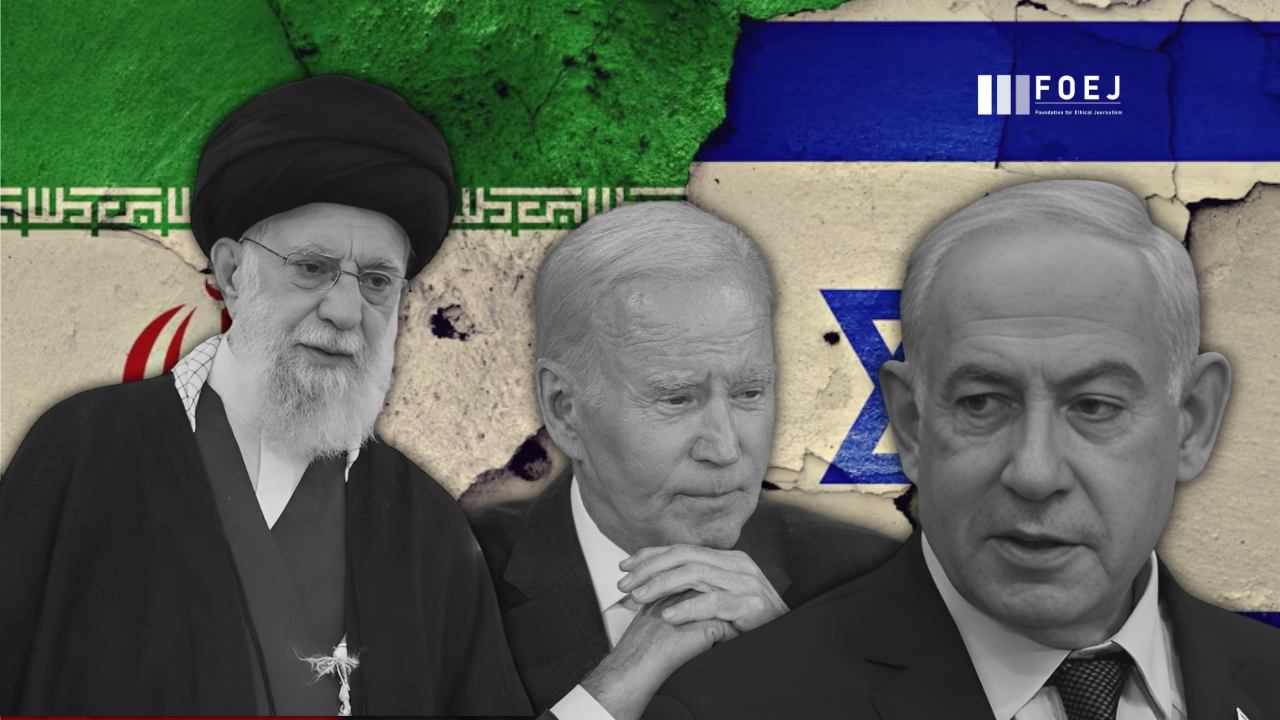In a “retaliatory strike,” the US confirmed that Israel launched an airstrike on Iranian soil early Friday, escalating tensions in the Middle East. However,there has been no comment from the Israeli military. This event comes just one week after Iran launched a drone and missile attack on Israel, another retaliatory act for the Israel attack on Damascus on April 13.
According to the Mehr news agency, flights in Isfahan, Tehran, and Shiraz have been suspended, as have airports along Iran’s western borders. Despite this, details of the Isfahan blast remain unknown. US reports suspect the involvement of a missile, whereas Iran claims to have used tiny drones. Isfahan was reportedly one of the launch sites for Iran’s April 13 attack.
According to Iranian media, Iran fired air defense batteries to shoot down three drones over Isfahan. Isfahan’s importance originates from its military infrastructure, which includes air bases, missile production sites, and nuclear facilities.
Israel does not usually disclose military operations, especially those against Iranian-backed organizations in Syria and Iraq. However, US authorities, according to CBS News, acknowledged Israeli involvement in the early Friday strike. Explosions were also reported in Iraq and Syria, where Iran-backed armed groups operate. However, the direct link to the Isfahan strike is unclear.
Iran downplays the strike
Iranian officials admit the attempted strike but downplay its significance, citing no recorded casualties. News agencies reported explosions near an army base, along with active air defense systems. A general in Isfahan said that the sounds were caused by air defense operations and that no harm had occurred.
Furthermore, Iran’s Tasnim news agency released a video apparently showing an untouched nuclear site near Isfahan. The International Atomic Energy Agency confirmed that there was no damage to Iran’s nuclear sites.
Hossein Dalirian of Iran’s National Centre of Cyberspace described the incident as a failed drone effort. Commercial flight restrictions were initially enforced but have now been eased.
What led to the attack?
After the Damascus strike that killed 12 people, including two Iran Officials, tensions heightened as Iran vowed retaliation. The culmination came on April 13, with Iran launching missiles and drones, marking Iran’s first direct strike on Israeli territory. The attack comprised over 120 ballistic missiles, 170 drones, and 30-plus cruise missiles, with launch sites extending from Iraq to Yemen.
While no fatalities were reported, a girl in southern Israel sustained injuries following the drone attack. The Israeli military claimed a 99 percent interception rate, aided by allied forces from France, the UK, and the US.
Egypt, the UK, Oman, China and the EU condemn the attack
Egypt’s Foreign Ministry voiced “deep concern” over the escalating Iran-Israel tensions, urging both parties to exercise the “utmost levels” of restraint to restore stability.
Ursula von der Leyen, president of European Commission called for restraint. “We have to do everything possible [so] that all sides restrain from the escalation in that region,” the European Commission head told reporters during a visit to Finland. “It is absolutely necessary that the region stays stable and that all sides refrain from further action.”
Meanwhile, the British Prime Minister, Rishi Sunak emphasized that “significant escalation is not in anyone’s interest” in the Middle East.
“It’s a developing situation; it wouldn’t be right for me to speculate until the facts become clearer and we’re working to confirm the details together with allies,” Rishi Sunak said following a speech in central London.
“What we want to see is calm heads prevail across the region,” he added.
Oil Prices Surge
Reports of the incident created a market disturbance, with oil prices surging over 3 percent on supply disruption fears from the oil-rich Middle East. Concerns over probable interruptions to oil supplies led to an instant jump in Brent crude prices to $90 per barrel which then fell back to $87 a barrel after Iranian state media claimed that there was “no damage” in Isfahan.
Equities dropped across Asian markets, with Tokyo, Seoul, and Taipei witnessing over 3 percent declines. There were also losses in Shanghai, Singapore, Wellington, Manila, and Jakarta. Gold surpassed $2,400, and the yen strengthened against the US dollar as investors sought safety amidst escalating geopolitical tensions.
“It is now clear that the escalating shadow warfare between Israel and Iran… has finally ignited the powder keg in the Middle East, and we have moved decisively out of the shadows and into the glaring light of open conflict,” Stephen Innes, of SPI Asset Management, said.
“It should be noted that this is not a staged response to an Iranian drone attack but rather an indication that we have entered a new phase of this conflict, one that is likely to have significant and far-reaching consequences for Middle East peace and least of all risk markets.”
As tensions in the Middle East boil, global markets remain apprehensive of further escalation and the economic consequences.









